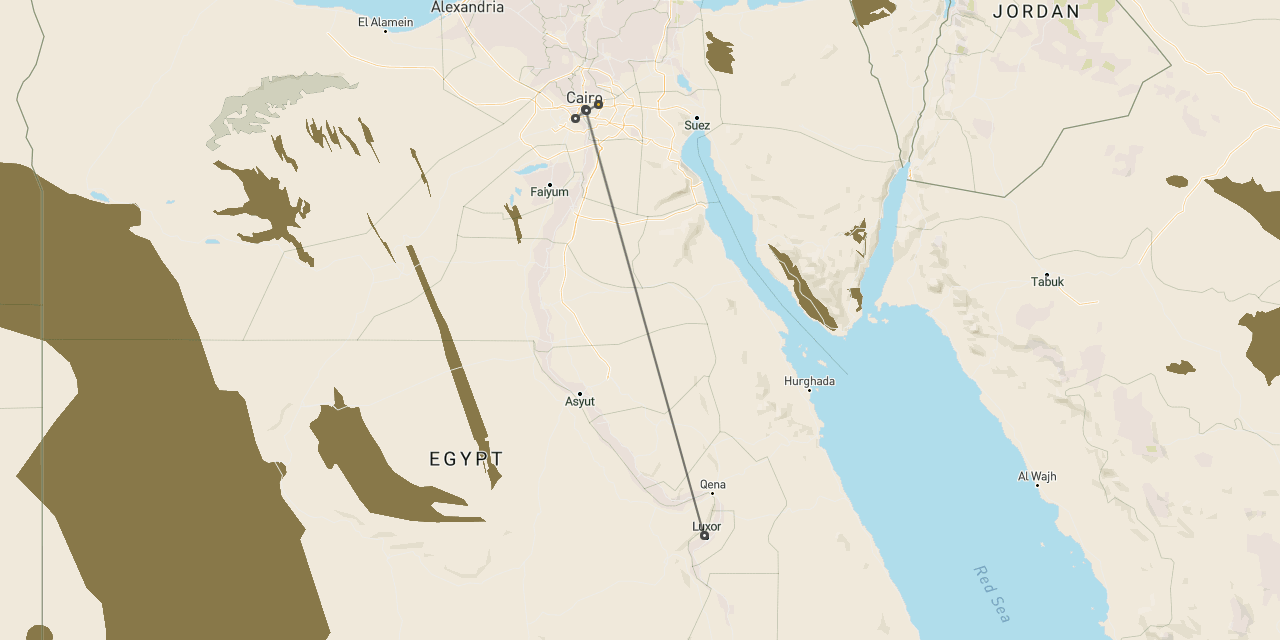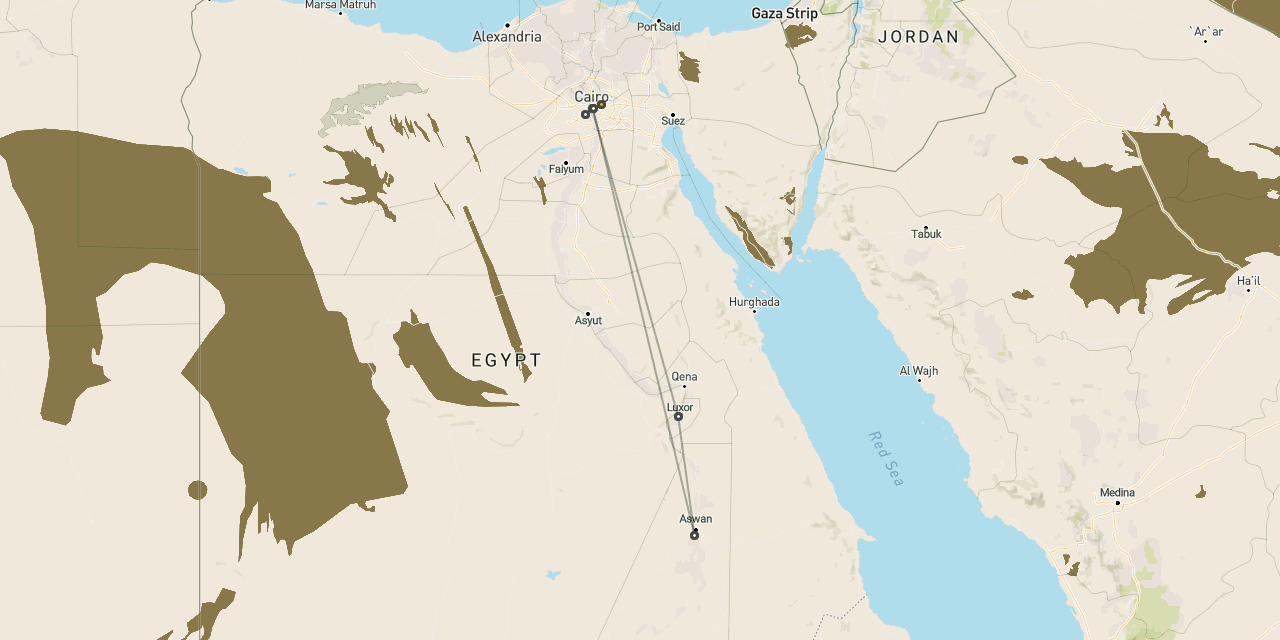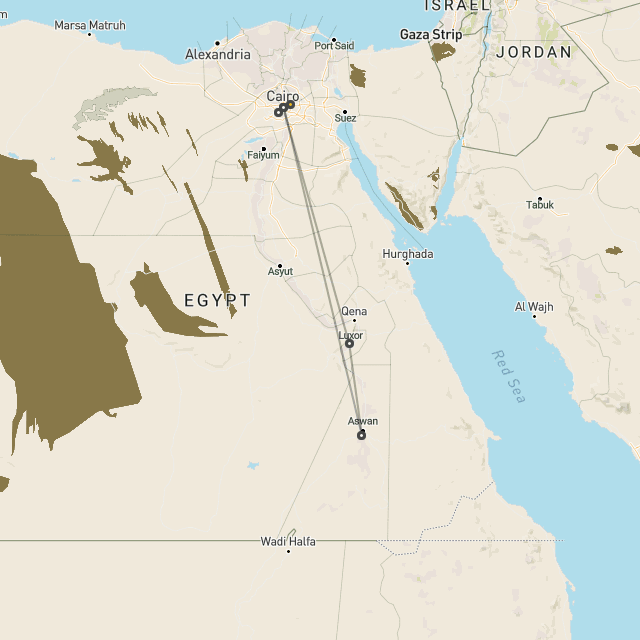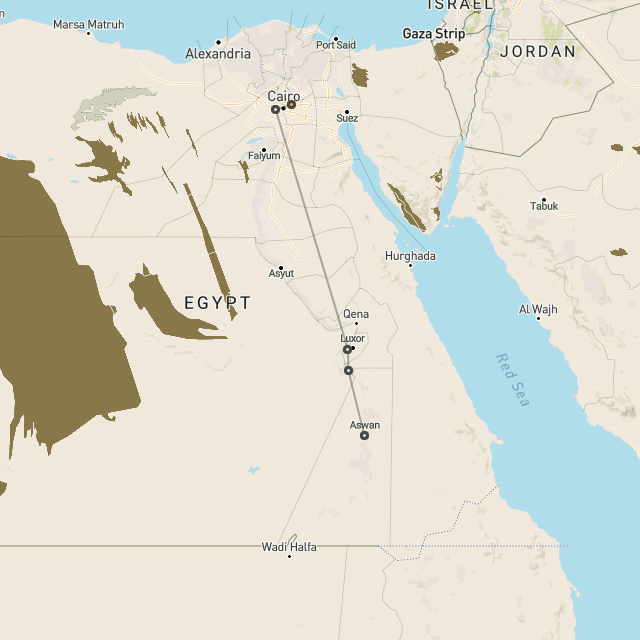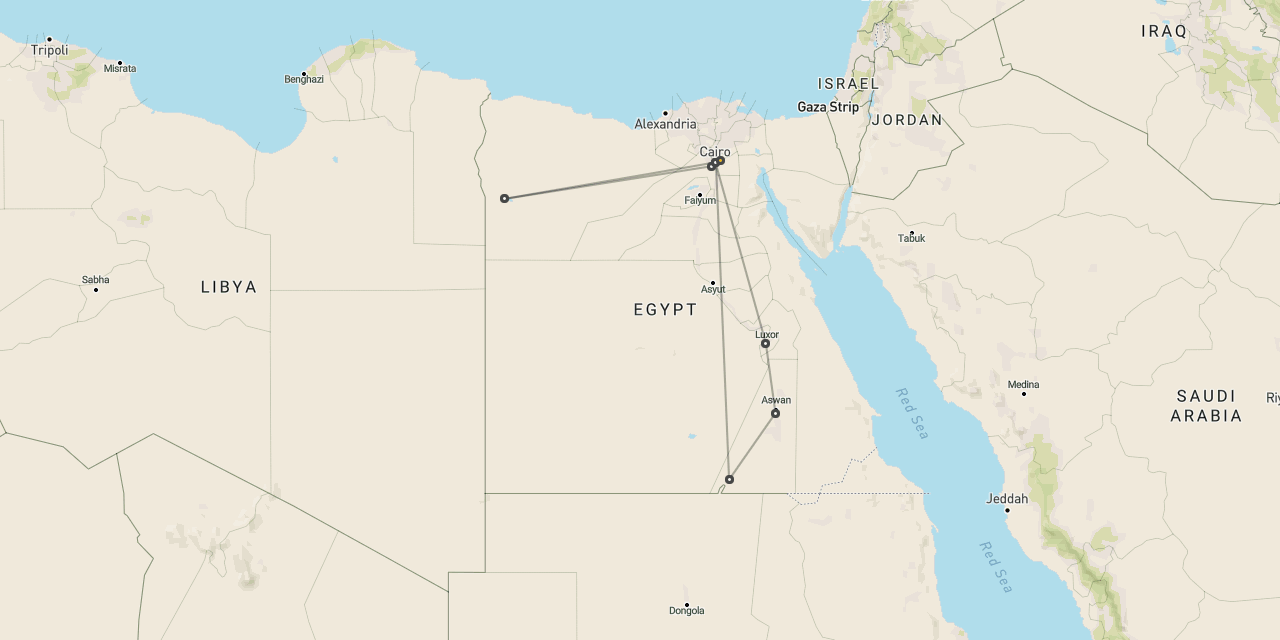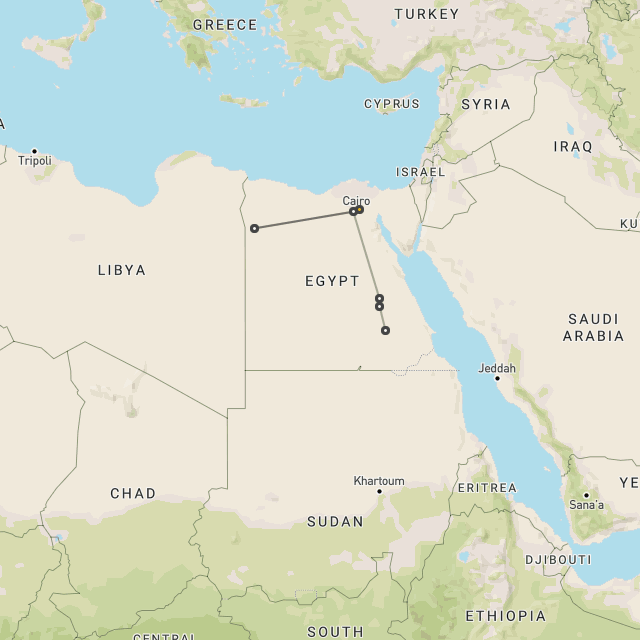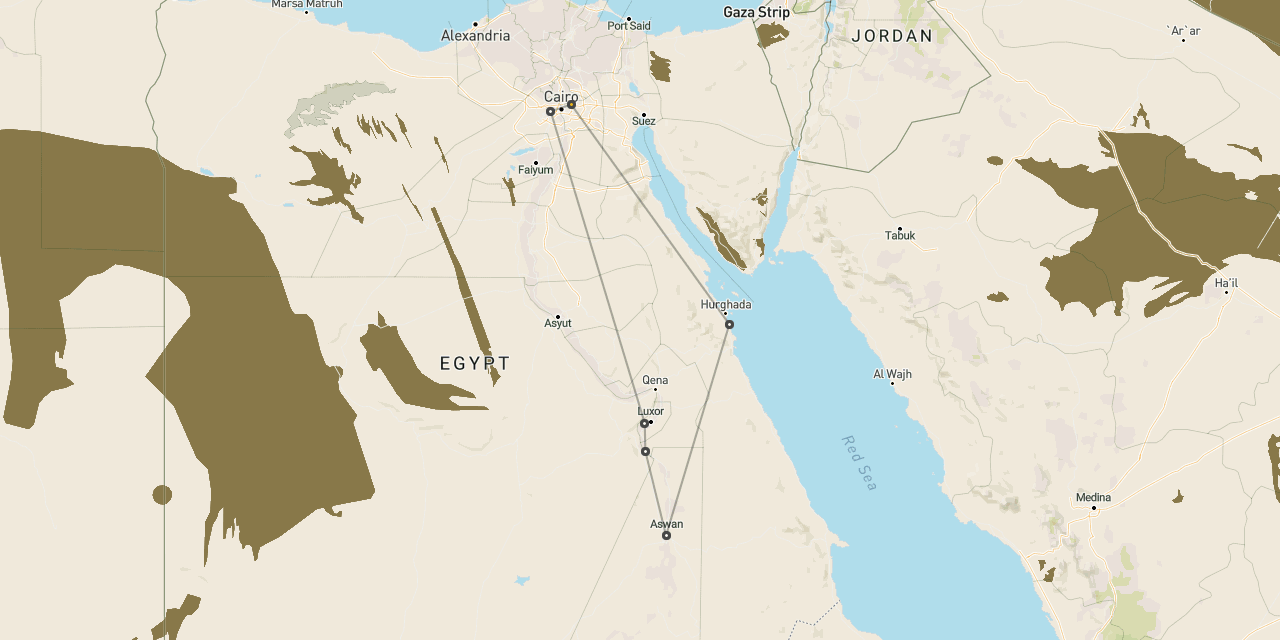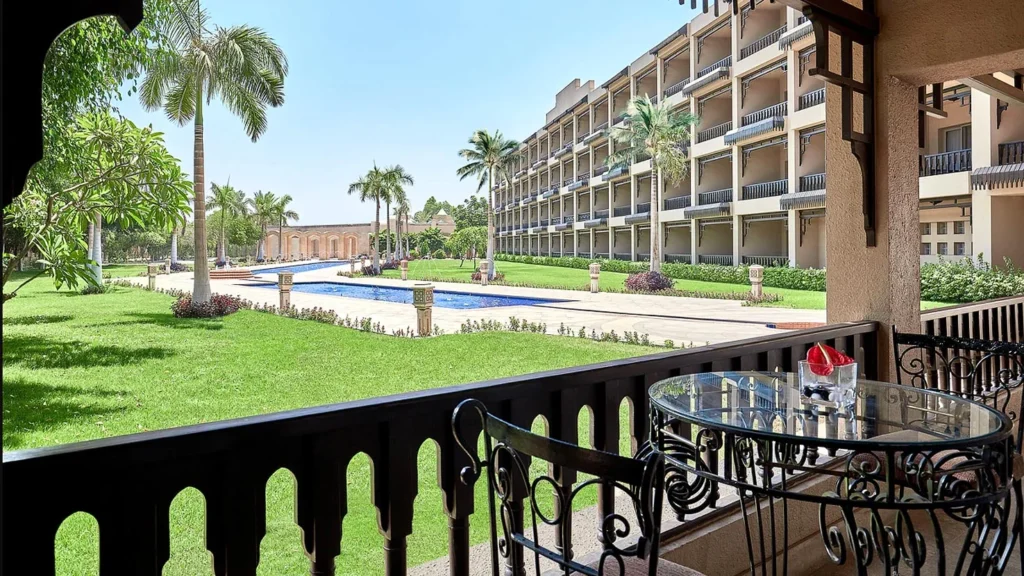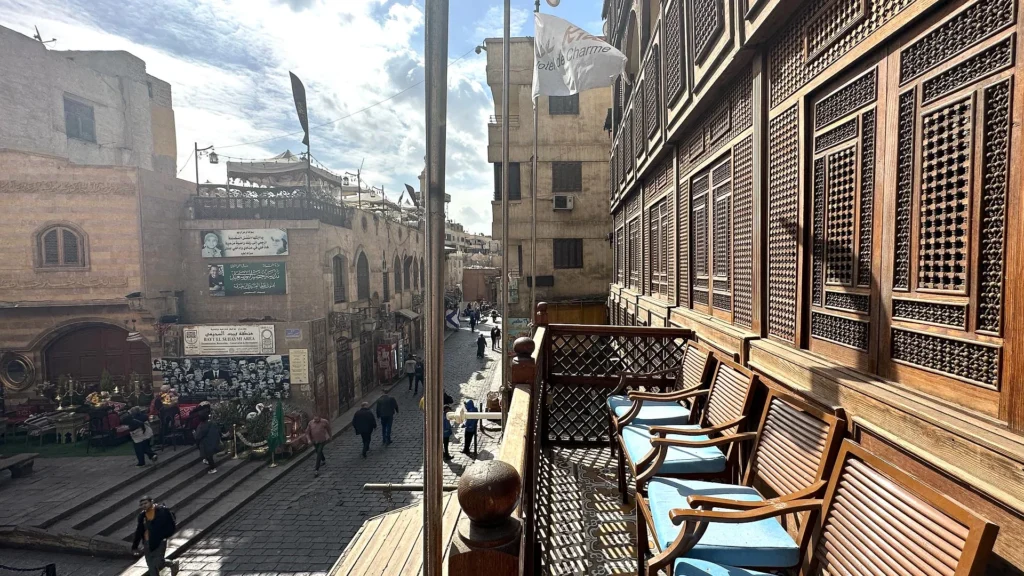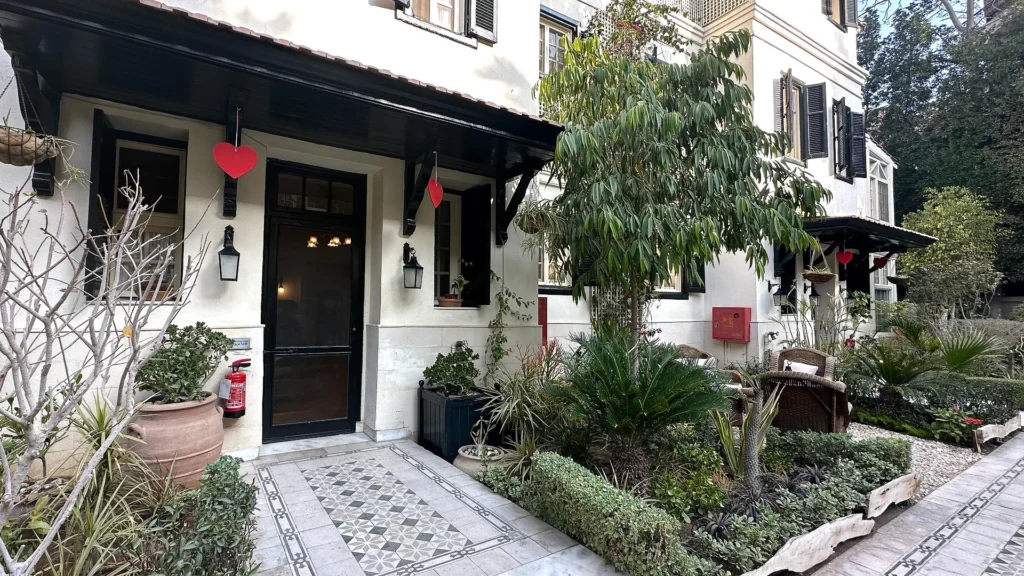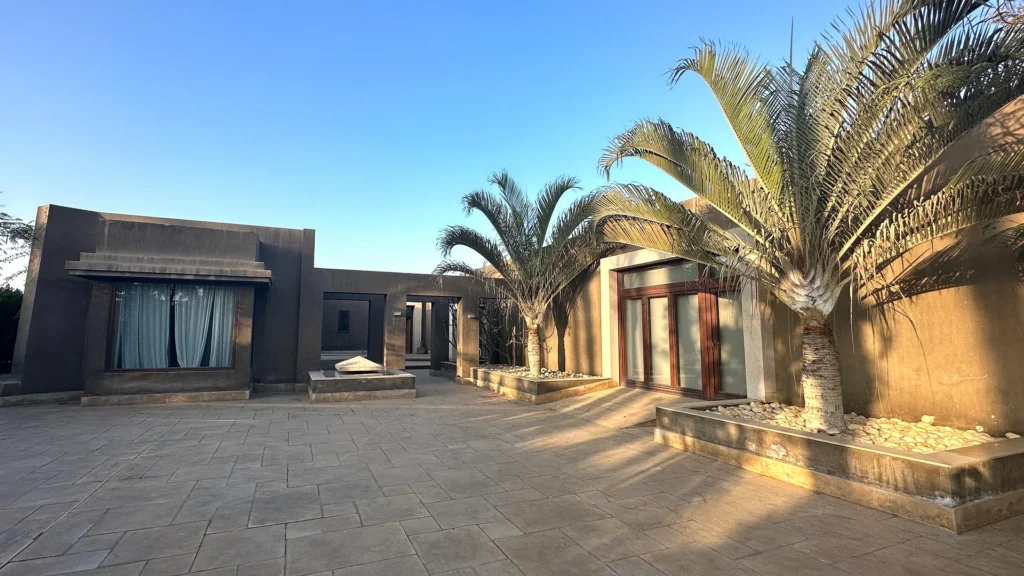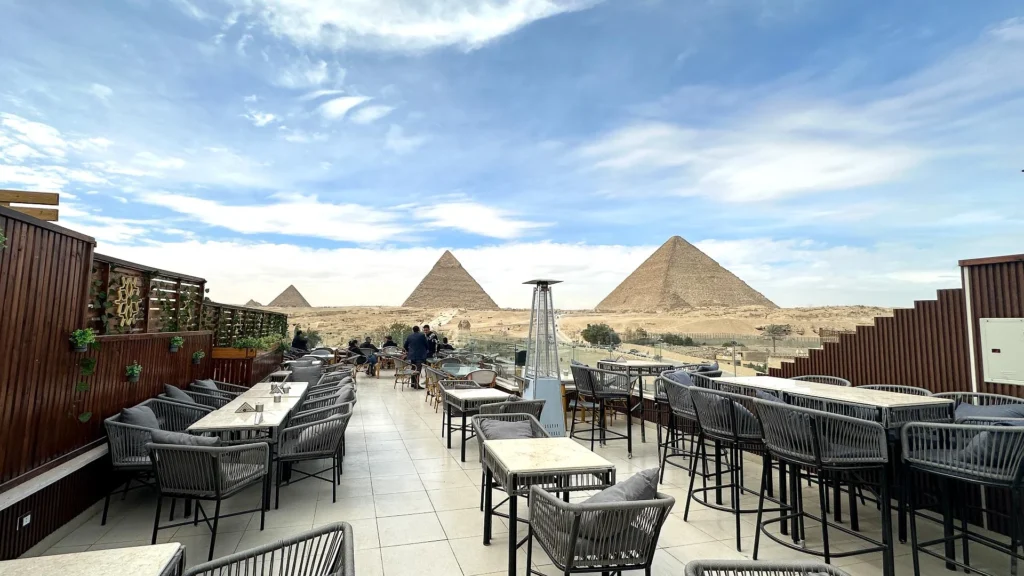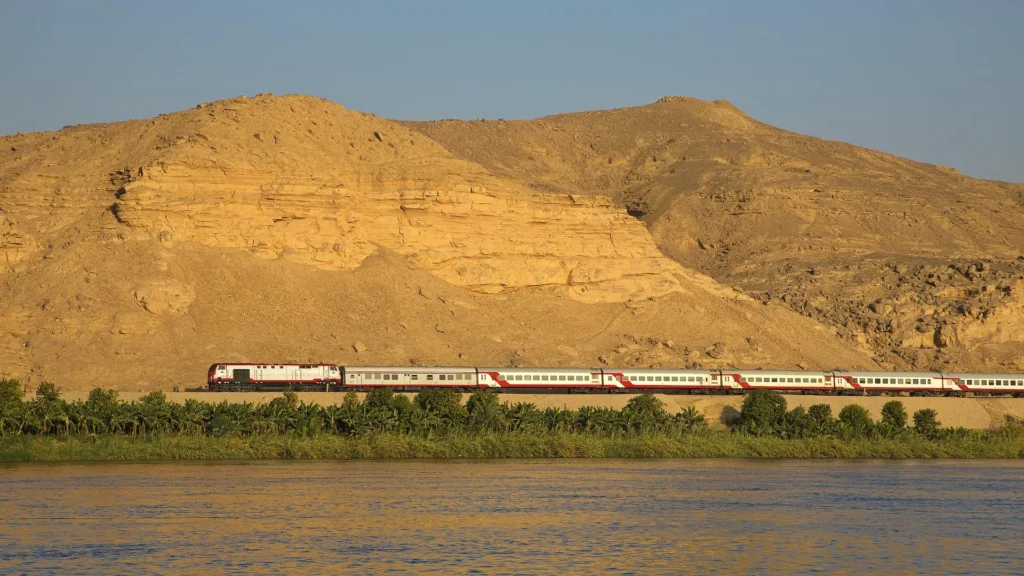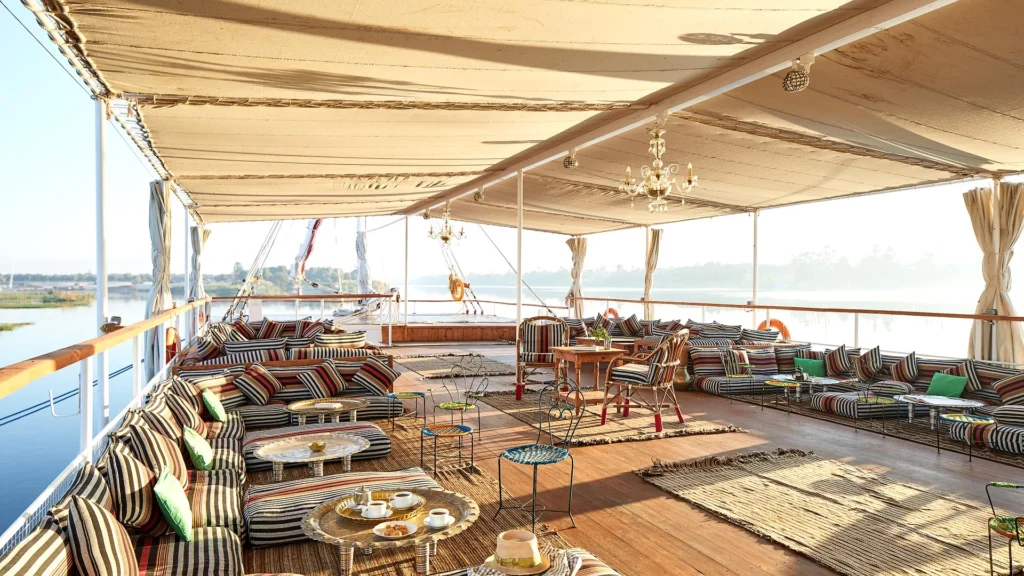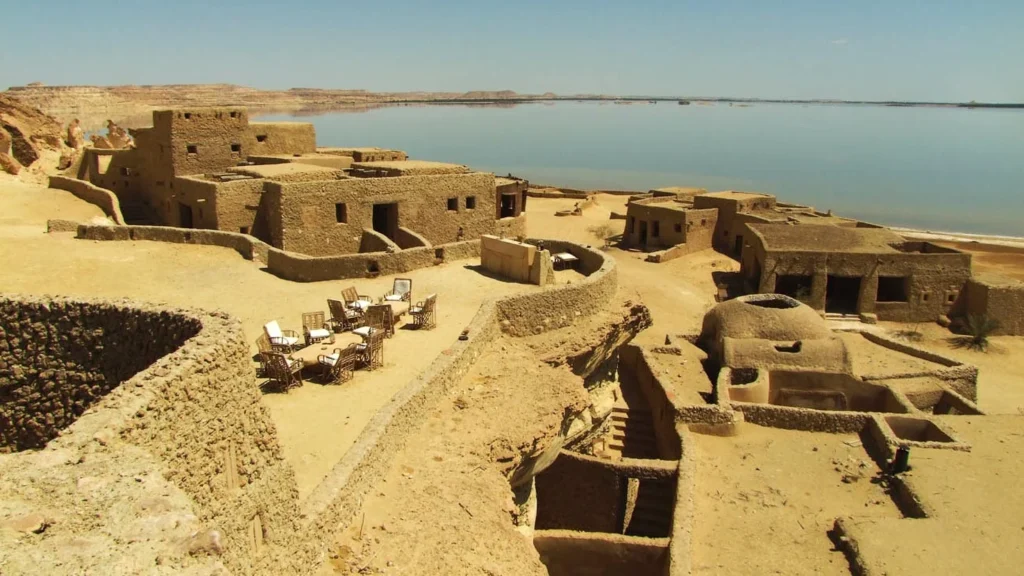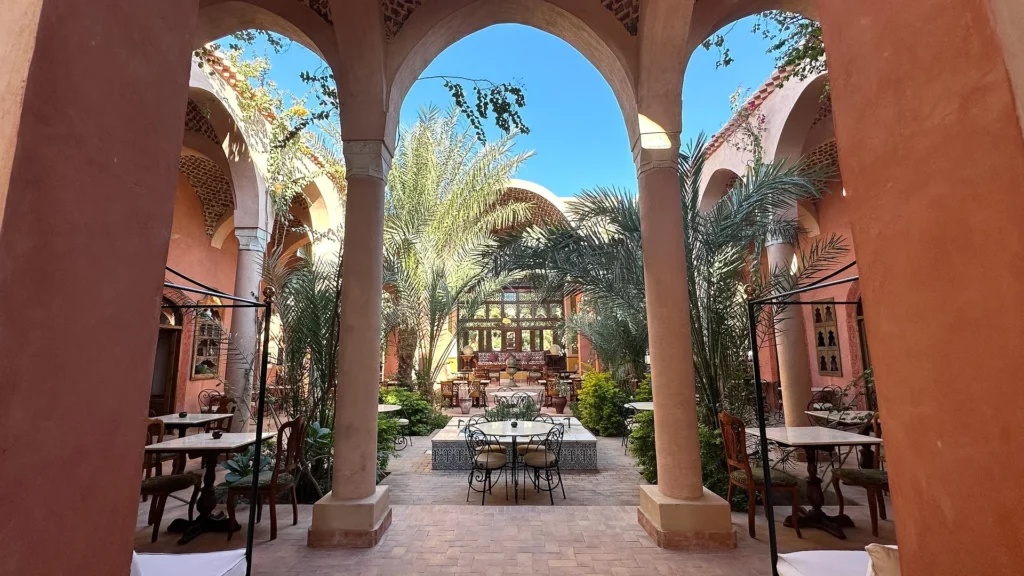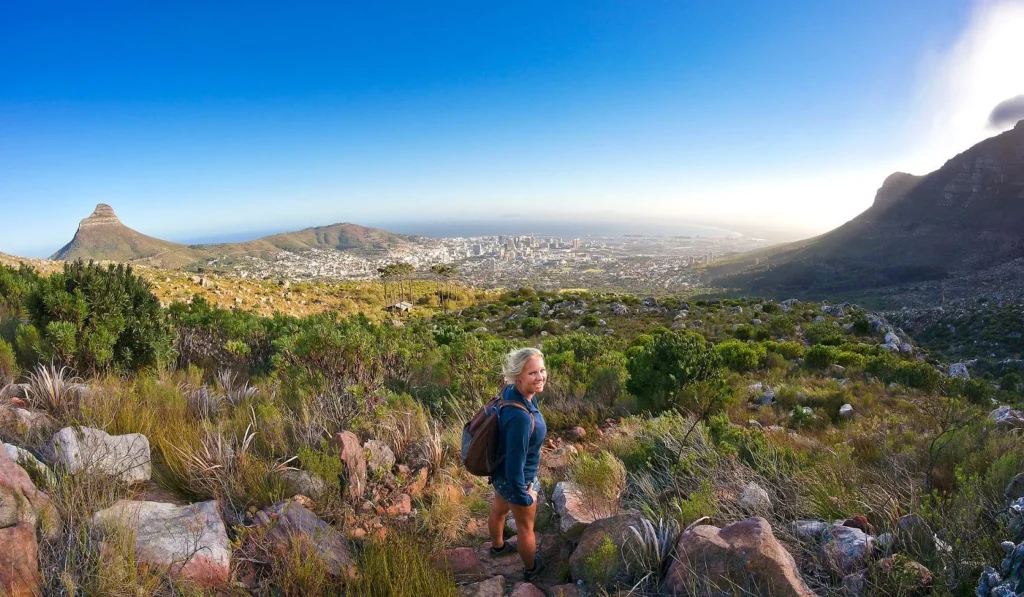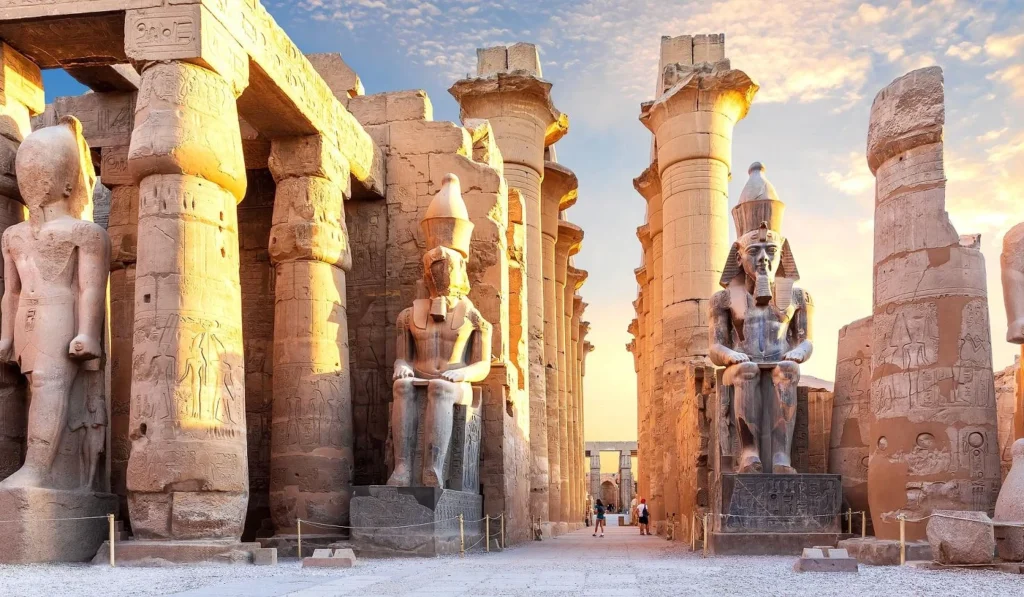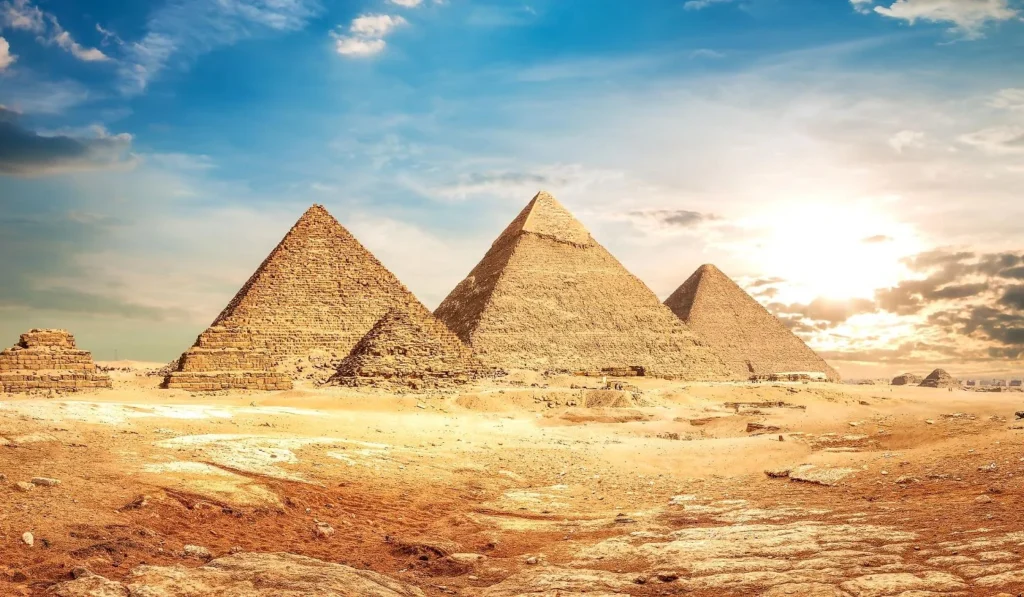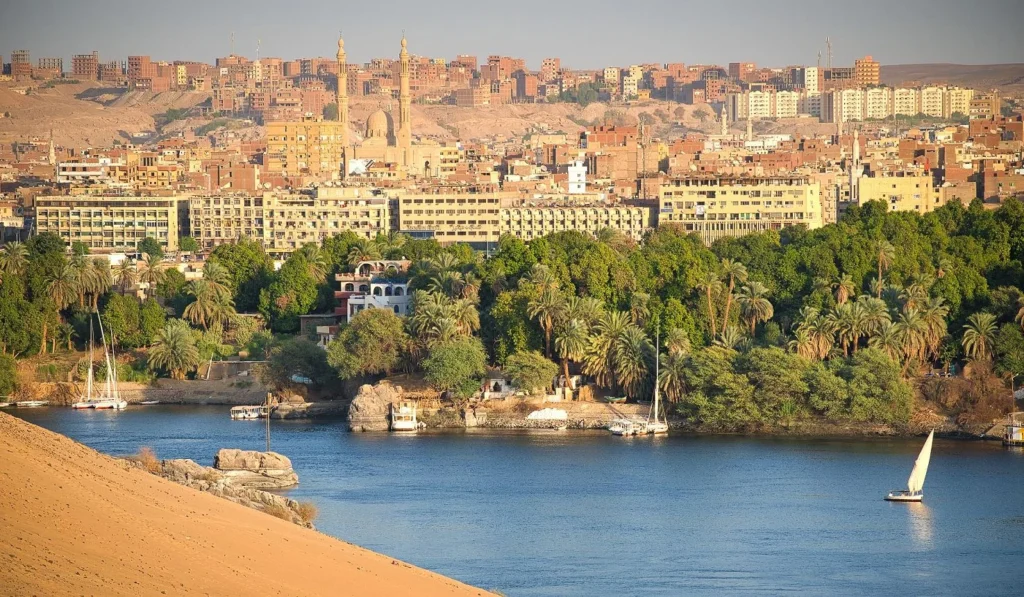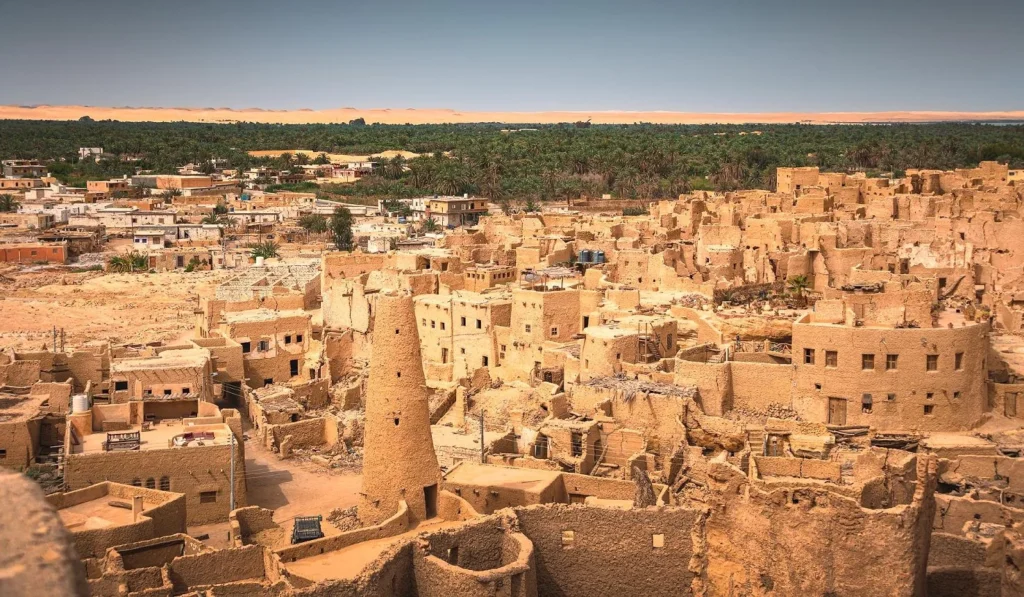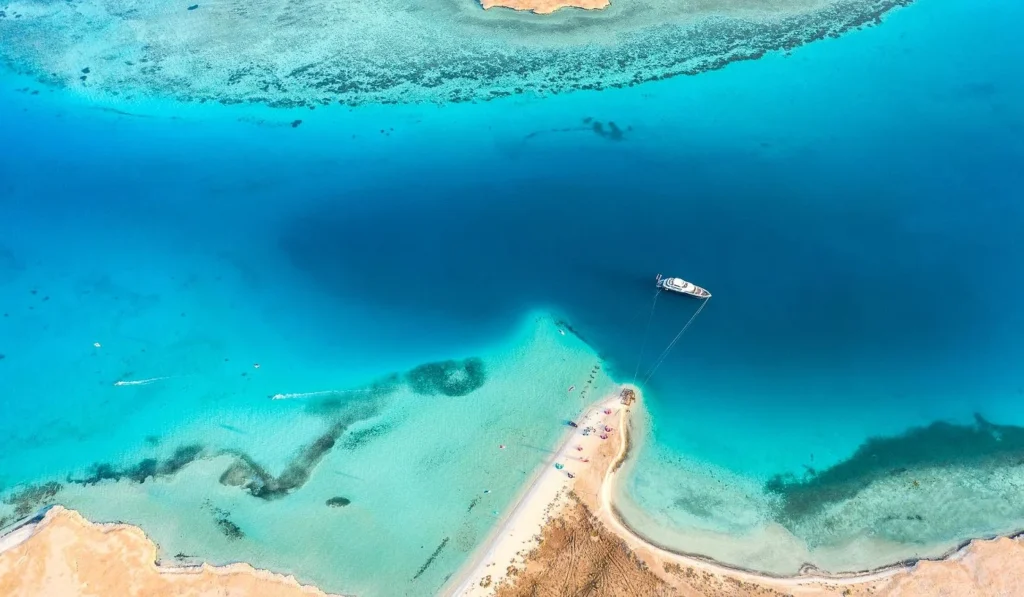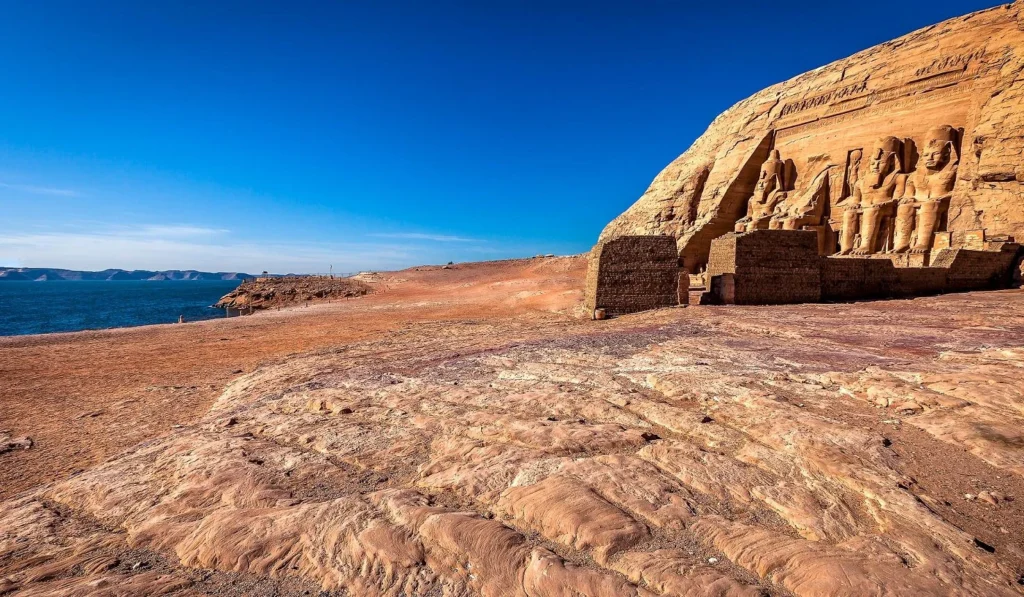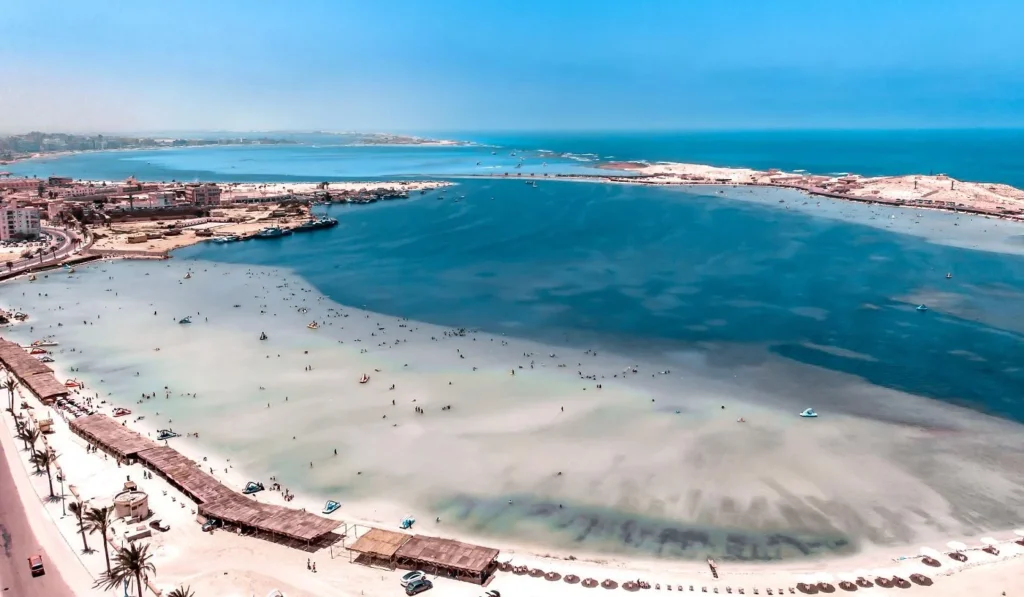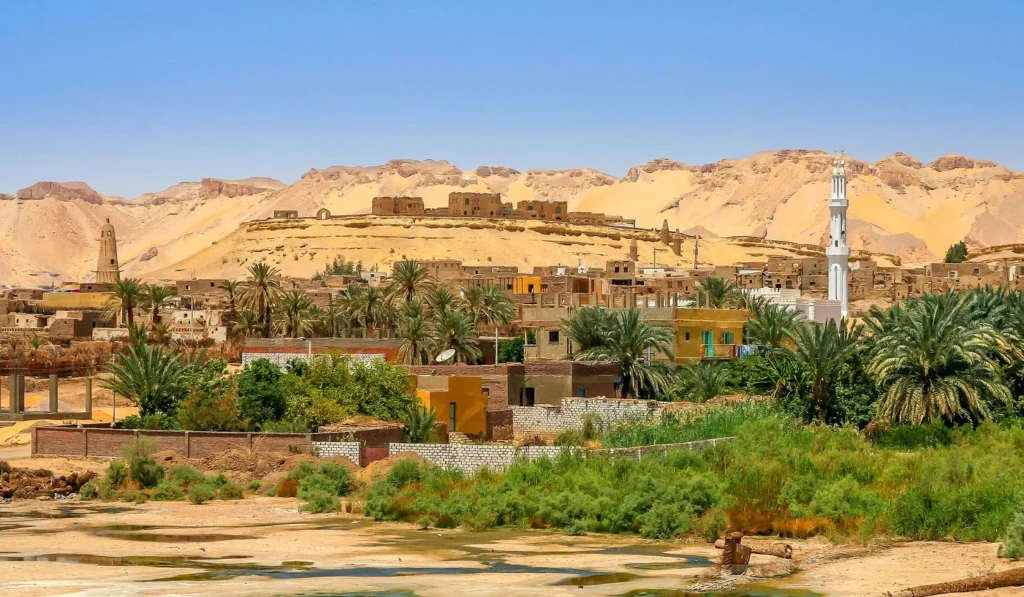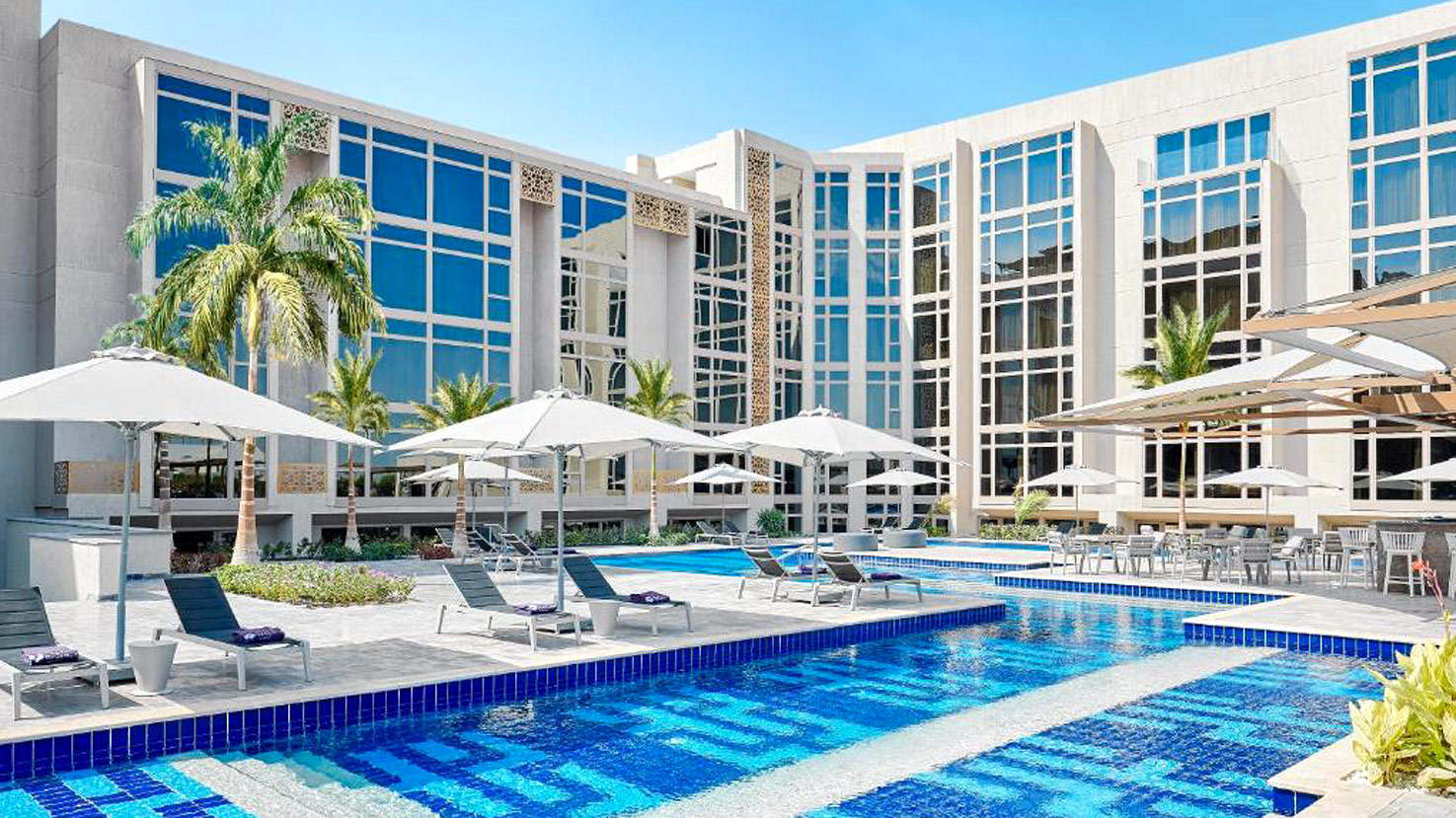
Hyatt Regency Cairo West
Hyatt Regency Cairo West
is a surprisingly high quality property
in a bland development zone north of Giza
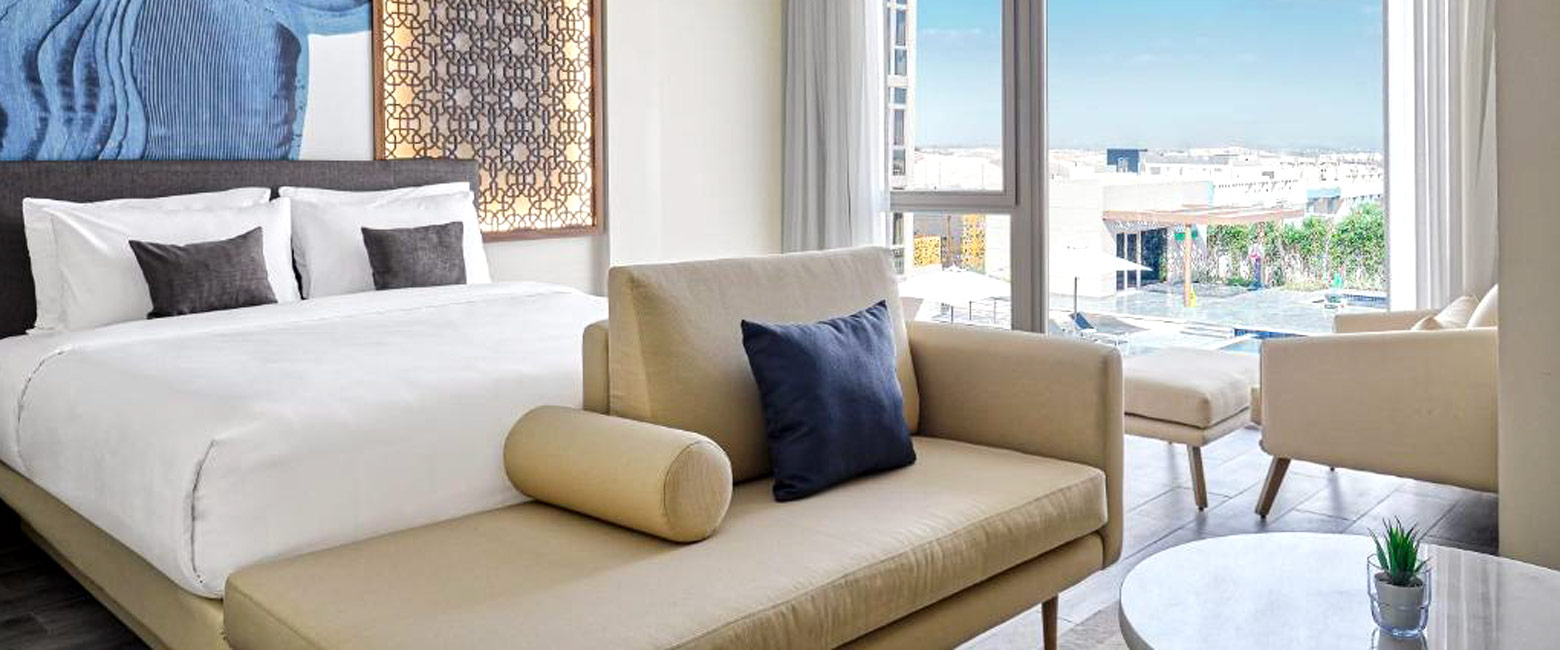
a decent back-up plan when Mena House is full
Set 7 km to the north of the main pyramids at Giza, Park Hyatt Cairo West is a high quality modern hotel, with a good range of facilities.
Despite the world class nature of the sites in this area, there are no genuinely good hotels, all of the accommodation options are burdened by some kind of major disadvantage.
In the case of the Park Hyatt Cairo West, it is the bland location that lets it down. The whole area to the north of the pyramids is a hideous mess of modern development, where hectic multi-lane highways subdivide sectors of desert where new developments of all kinds are taking place. Staying here, you need to be able to shut your mind to these severe aesthetic shortcomings and instead be thankful of the fact that you should be avoiding the worst of the city traffic.
Once inside the complex that contains the hotel, everything becomes rather more pleasant, with an avenue lined with palm trees leading up to the entrance.
Inside, the hotel is fresh and stylish, with impressive double-height public areas containing a bar, a restaurant and various lounges. Further facilities include a spa and gym, with an outside area containing an extensive swimming pool and a bar area.
The hotel contains 250 rooms of various specifications, with the higher level options being larger and with pyramid views. Given that these views are distant and largely across wasteland, we often chose the simpler and lower cost options, which are perfectly comfortable.
Given the incredible shortage of good accommodation options in the greater Cairo area, this imperfect solution may be the best alternative.
Despite having the vibe of a business hotel, it is a whole lot better than functional and it’s certainly an easy place to slide into Egypt gently, whilst getting over your jet lag.
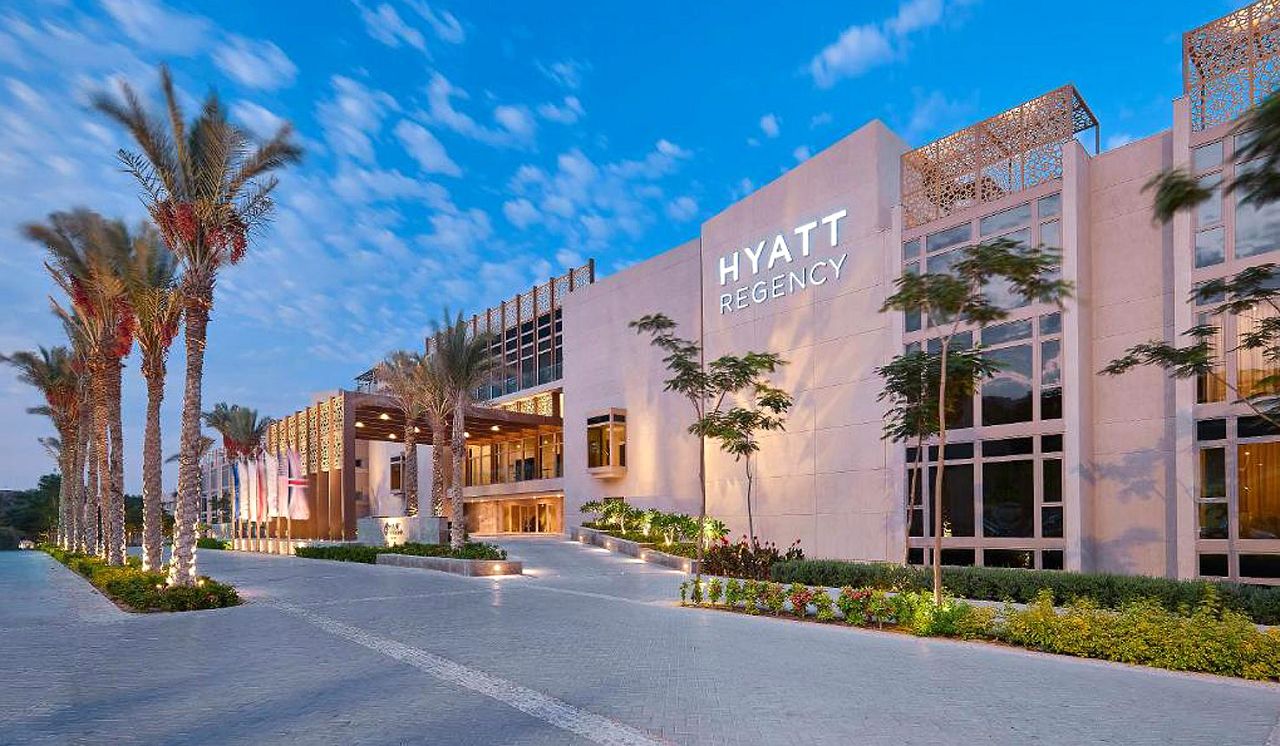
Gallery
Map
The traffic in Cairo is famously crazy, partly in terms of jams, but mainly in the crazy way that the locals drive. You will need to endure this during your stay, it is an integral part of the experience, for better or for worse.
The usual stay duration is three nights, which allows a full day for the the older pyramids of Saqqara/Dahshur area (45-90 minutes to the south), plus a second full day for the more famous pyramids and museum of the Giza area (15-30 minutes). You may also find time to head into the Old City to explore the souk, but this may see you become entangled in more serious traffic.
If you subsequently head south to Luxor on the overnight train, then you can cut this to two nights in Cairo. If you specifically want to explore the Old City, then we usually include a night at the end of a trip, when guests have had some time to toughen up and after which you will have a long flight to catch up on the terrible night’s sleep you will most likely have experienced.
Seasonality
The best time to visit Cairo is widely considered to be the winter months of Nov-Mar, but we sometimes favour other times of year, when temperatures may be higher, but visitor numbers are often much lower.
Cairo experiences a conventional northern hemisphere climate, with a hot dry summer centred on May-Sep and a warm dry winter Nov-Mar.
May-Sep : Summer
During the May-Sep summer the daytime temperatures typically reach 41C, with night-time temperatures holding up around 23C. Although these temperatures may seem concerning, the relative humidity drops considerably, meaning that comfort temperatures are not so bad, at least during the day. This season can also be advantaged by light summer breezes out on the river. However, given the warm nights, we do recommend that you stay somewhere with air-conditioning.
Despite being ‘out of season’, visitor numbers do increase during the European vacation season, centred on Jul/Aug, so best to head for May, June or late September if you can.
Some hotel prices can also be considerably lower during some of these months.
Oct : Autumn
The month of October represents a transition between summer and winter conditions and, in many ways, offers the best of both worlds, with visitor traffic also being relatively low.
Nov-Mar : Winter
During the Nov-Mar winter the daytime temperatures typically reach 25C, with nighttime temperatures plunging to 8C. Relatively humidities rise considerably, meaning that the middle of the day can be surprisingly uncomfortable, given the relatively low absolute temperatures.
These warm (rather than hot) conditions have led to winter being the most popular time to visit, meaning that visitor numbers reach their peak, especially around Dec-Jan. We therefore recommend November to mid-December and mid-January to March (excluding a week either side of Easter), although even then you probably need to deploy traffic avoidance measures when visiting the key sites.
Some hotel prices can also be considerably higher during some of these months.
Apr : Spring
The month of April represents a transition between winter and summer conditions and, in many ways, offers the best of both worlds, with visitor traffic also being relatively low (except for a week either side of Easter.
Getting there
Set about 20 km east of the city centre, Cairo Airport is one of the busiest in the world.
It has good international flight connections with Europe, Asia and Africa. Connections to the Americas are rather more spartan, with only Egyptair offering regular non-stop flights to North America (notably New York and Washington). Most people either take these services, or fly via London or Frankfurt.
From the airport, the city centre can be reached in 20-40 minutes, depending on traffic. Giza and Saqqara are usually more like 40-60 minutes.
We only recommend private-guided transfers. The local taxi drivers can be a bit challenging to deal with.
usually for three nights at the front end of a trip
let us know your thoughts about Egypt
and we will help you create the perfect safari
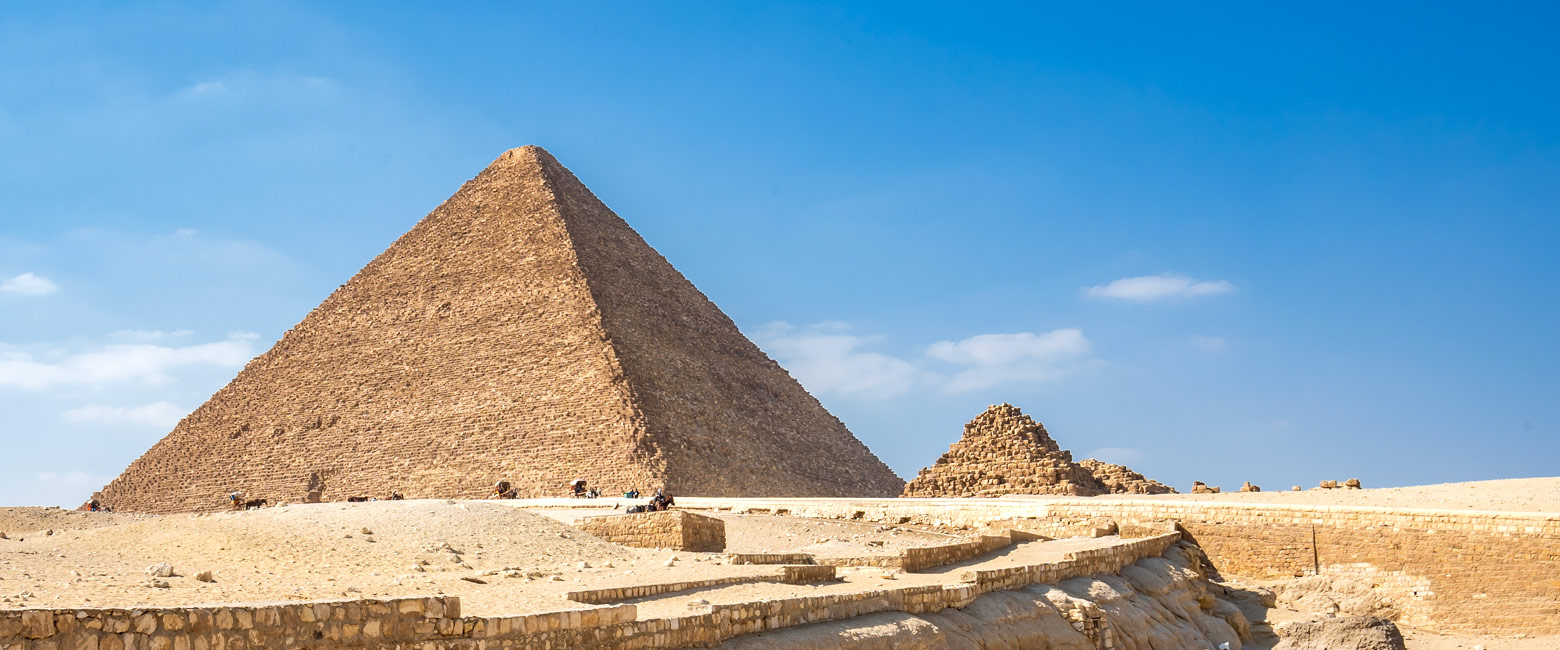
Extraordinary tailor-made adventures,
from earthy and edgy to easy and extravagant
From around USD 2500 per person, you set the ceiling

Get started on your trip
It’s never too soon to get in touch, we are here to help with every stage of your planning.
Sample Trips
Here are some of our popular trip shapes
Best Lodges
We regularly inspect and photograph all of the the best lodges, to ensure that we always recommend the most suitable options
Key Locations
Take a look around related locations. Click ‘View more’ to explore locations further afield.




















































